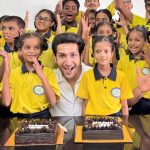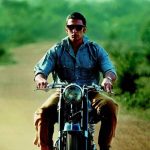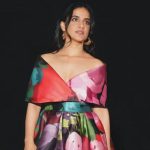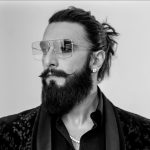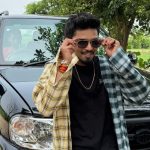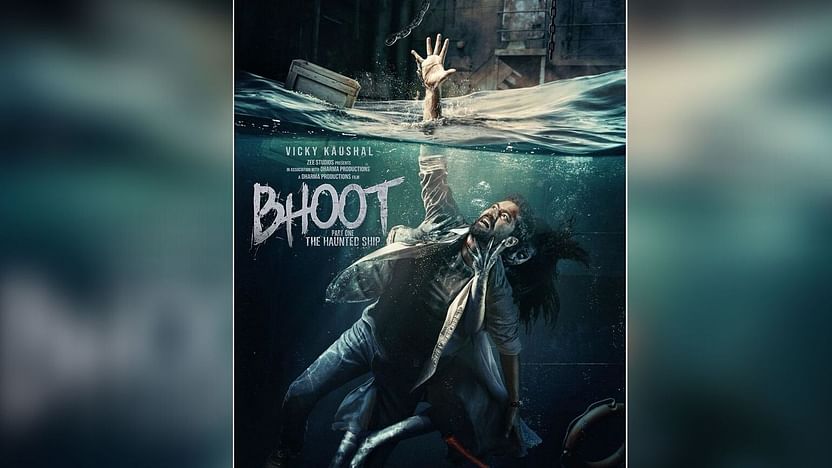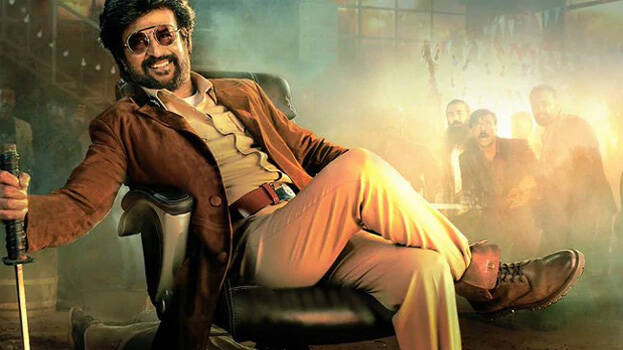Filmfare ME Cover Star Randeep Hooda talks to Aakanksha Naval-Shetye about his trial by fire, rising like the Phoenix and claiming his spot in the sun; also talks about completing 2 decades in Bollywood and getting a new action image post Hollywood debut Extraction!
There’s something unique about Randeep Hooda. Oozing raw masculinity, combined with an earthy appeal, topped with a sapient intelligence and his cinematic sensibilities made him an instant heartthrob! And though the macho star may have conscientiously steered away from being the quintessential Bollywood hero and instead opted for the more intense and challenging roles, yet his quirky choices over the years have not dented his commercial viability at the Box Office. Neither has it dimmed the hunky appeal that his fans swear by. Having cemented his spot as a powerhouse performer with films like Highway, Laal Rang, Rang Rasiya, Sarbjit, amongst others, he’s currently rocking the scene with his high-octane, action-pumped outings in two massive blockbuster entertainers back-to-back. His Hollywood debut that saw him raise the temperature in Netflix’s Extraction also starring Chris Hemsworth and most recently in Radhe! Interestingly, the actor – who made his debut in Mira Nair’s Monsoon Wedding (2001) – also completes two decades in the industry this year. Riding high through the journey, working on his terms has seen Randeep hit a few lows too. But the star’s risen like a Phoenix each time to claim his spot in the sun! In an exclusive interview with Aakanksha Naval-Shetye, the man du jour Randeep Hooda talks about completing 20 years in the industry, uniting the actor and the star in his performances and discovering his love for action. Excerpts:
You complete two decades in Bollywood this year. How do you look back at your journey?
A lot of ups, downs, questioning oneself, adjusting to changing forms, soul-searching, a lot of gratefulness… A sense that I was somewhat choosing films ahead of their time, and to now see them in vogue. When I went for my audition for Monsoon Wedding, little did I know that I will be giving this interview two decades later and it’s a great feeling that one stuck to the convictions and the journey continued.
In 20 years, I’ve not done many films as compared to a lot of other people, taken three years off in between, but I’m really grateful that the filmmakers still see a lot of untapped potential in me and want to offer me new things. I have tried to follow art which is essentially a business in our country. But I have done commercial films, independent films, experimental films, so yes, I’m very grateful for all the opportunities and I’m still very driven, still very interested in my work, still looking for answers, still looking for ways to better myself, still growing into being the actor that I probably can be. So it’s a journey which is continuing and it’s been a journey of more or less being a student who learnt bad habits got rid of bad habits, had a chip on my shoulder. I was very brash to start with, but it’s all changed into humility and things that really matter are the ones that I’ve now been involved in, the rest have fallen by the wayside. There are a lot of movies you wanted to make but could not make, many you could. All in all it has been a very fruitful experience and now I think I’m at a place where a lot of things are in equilibrium and you know vis-a-vis the opportunity that I have also has a larger fan-base which are the consumers of your product in which you try and put in some art (laughs)! So, yes, a very interesting journey and I hope that there are two more decades left if not more (laughs).

You’ve been fearless when it comes to choosing your roles even if they were offbeat and like you said ahead of their time. Has that process of choosing your films changed over the years?
The choice of films that you’re talking about, you choose the best of what you get and I’m not the kind who goes out and panders myself or goes out there and sell myself so to speak, so whatever I get I try to choose the best from them. I try and keep doing new things and if there’s something I haven’t done or I like the people involved in it, I’ll go for it. Yes, I’ve been quite fearless in my choices, done all kinds of genres – from Highway to Bombay Talkies to Jism to Main Aur Charles. So I hope to keep choosing and I hope to keep being fearless in my choices. What has changed though is that earlier I used to look just for my roles, like what am I getting to do, but over time I’ve come to realize that you’re just a cog in the wheel of the entire process. So while you would still work as hard, if the makers do not give that kind of a platform to your work then there are lesser people who watch it, translating to lesser the money, and then it becomes more difficult for you the next time to make a film. So now I’m also choosing the right people to collaborate with, not just a good story to tell or a good part for me to do. Now it’s also important to see if they would give platform it requires for a movie to reach people.

Well, you seem to be on a roll with Extraction and now Radhe: Your Most Wanted Bhai…
Yes Radhe is as commercial as it can get, and then there was Extraction which was watched by people across the world. So in doing these two films back-to-back I have covered most of the globe it seems (laughs).
The more people watching your films means more money coming into the coiffeurs of the producers, and that is very reassuring. And as I said, you are doing the art in it, but ultimately it’s a business product, so to be a part of two of the biggest commercially hit and massy entertainment films and that too in action I’m quite thrilled about it and through this pandemic when everybody is in lockdown there are two of my films that’ve come in and given some respite to people so all in all it feels great.
When you talk about the commercialisation of art, have you had to compromise in trying to maintain the balance?
I have been in both boats! I’ve been critically acclaimed as well as I’ve seen commercial success. So I wouldn’t say compromise, but I would call it adapting. But this ability to adapt myself has probably always been the cornerstone of my career, because I’ve always gone and adapted myself to the role and the genre instead of imposing myself on it and that is also what has created the variation in my work and the so-called indie-commercial thing, and that’s all that I’ve done. So you can look at it as compromise, but I look at it as adapting and I will do it to the best of my abilities.
You know, the one thing I realized with experience is that nobody owes you anything, the world doesn’t owe you anything. So, there’s no ‘I should’ve been given this or I should’ve gotten that. You just have to keep contributing and hope for the return, so I have been adaptive as an actor as well as in my choice of work, I won’t call it compromise.
“In India there’s a notion that there are stars and there are actors, I hope to make them one, hopefully sooner than later!”
So, are your choice of roles finding a better balance between being a commercially viable star and an artiste or an actor pursuing an art?
Well, yes, I feel there is a better balance now. In India there’s a notion that there are stars and there are actors, I hope to make them one, hopefully sooner than later!

Talking about adapting, you’re easily the king of biopics with all those mind-blowing transformations…
Yes I have done a few biopics, but I don’t choose a film to change myself or to show off my ability to do all that. Those transformations are damn hard and I hate it (laughs). It’s physically, mentally and emotionally just so exhausting, so no, I don’t choose a film for that. I choose a film and while exploring it, you try to feel what the real person’s life was like, what he thought or felt, and in that scrambling you make that character yours. But having said that, it’s also the most liberating feeling that you are absolutely somebody else and you give yourself the opportunity to take on the life that you’re supposed to live through the script. Yes, its hard work, but I feel very driven for it.
How’re you taking to the action-hero tag?
It’s very strange that there was a certain image that people had of me relating me to violence, tough guy roles, though I had never really hit anybody with my fist in a movie ever until I did Do Lafzon Ki Kahaani where I play a Mixed Martial Arts fighter. Even then it was in the ring that I was a fighter. So, when I did Extraction, I did not know that the action was going to be so elaborate, but I found that my body responds well to it. My body and mind become one when pulling off those action sequences. So it is now, 20 years later that I have discovered this flair for action movies, and I’m quite enjoying this space and genre and I hope I get to do some more, which are a step further from what I’ve already done in Extraction and even Radhe. Of course, I’ll have to keep doing other genres too, but yes, doing action has been great especially what we did in Extraction, which is real high-grade action even by Hollywood standards. Even the action sequences in Radhe. It was fun jumping off a helicopter and surviving it, I felt quite resurrected I must say (laughs).
“All I want and I’m trying to be is a part of some amazing films and grateful that my work is getting appreciated. You know what they say in our business, something that I never believed in… ki dikhta hai to bikta hai, so yes I had not bikoed for many years in between. And yet I’ve come back and gotten work and am being appreciated, so I’m very grateful. I don’t look back at it with anything except a sense of gratefulness that I got work again.”
You share an interesting camaraderie with Salman Khan on screen, what about off it?
We have shared a great bond off screen too. We’ve had our ups and downs in the friendship we share, but there’s obviously an elder brother kind of thing we have. You know he’s always given me good advice, not that I’ve always followed it (laughs), so yes it’s just been a bond where there’s a sense of respect and our work together… Kick and then Sultan. With Radhe it has gone a notch higher, it’s also a Salman movie, so it’s his generosity that he really wanted me to do this part, so the things he says are ‘kabhi sun bhi liya kar’ (laughs).
Is this another thing that’s not changed in 20 years, you still don’t listen to advice?
(Laughs) No, I listen to it a lot more now, though in certain ways I still don’t.

What’s the best advice you’ve got?
Learn your lines and don’t bump into furniture!
By Naseeruddin Shah?
Yes, he had jokingly said that. I have learnt a lot of great things due to the proximity to Naseer bhai, whether it’s his workshop or theatre troupe which has really made me find my own self, as an artiste, as an expressionist. So, now I listen less to performance advice and more to life advice.
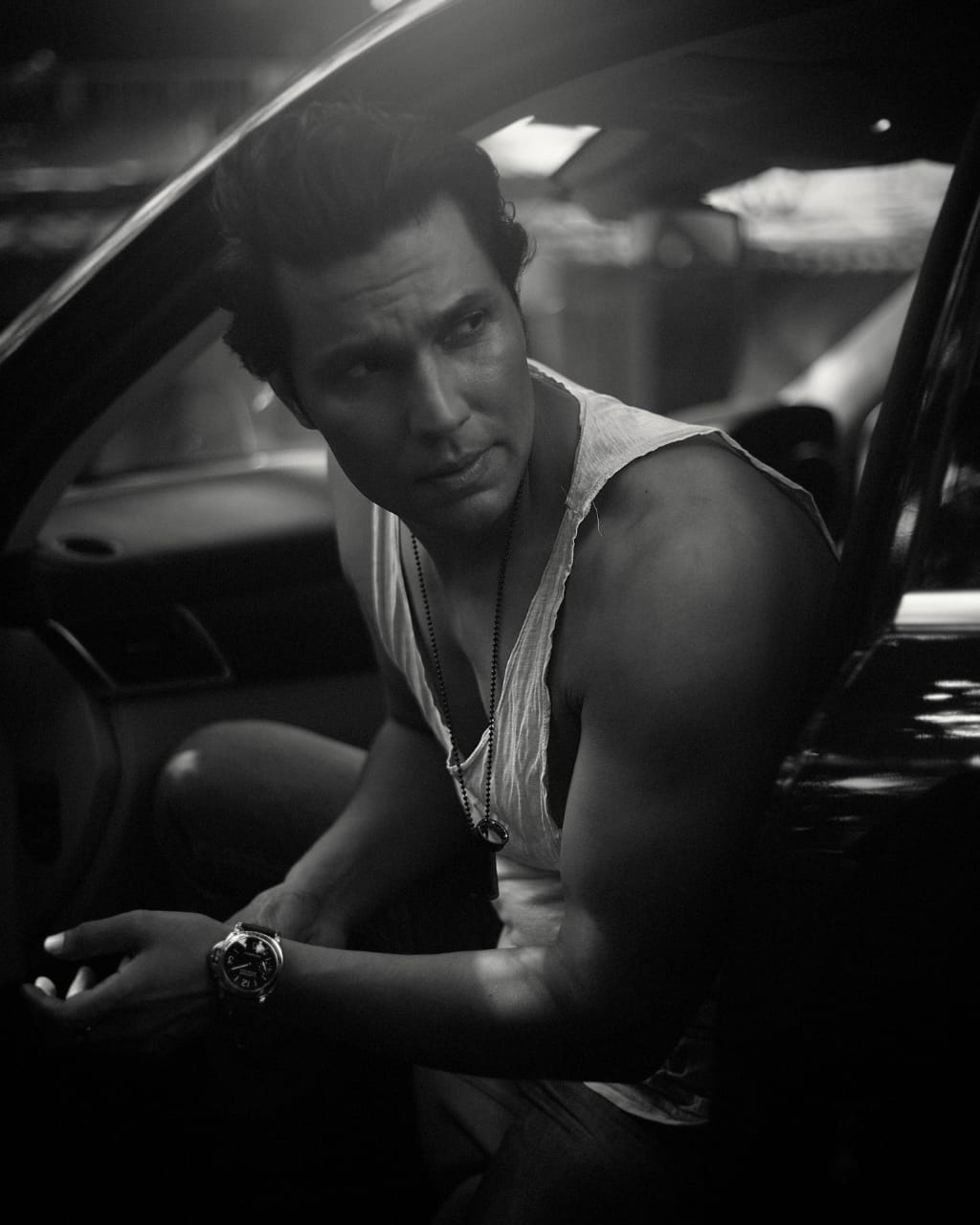
What’s the one life lesson that you follow as a rule professionally?
There’s no hard and fast rule really that I have. I’m very approachable, listen to the director, turn up on time and I’m always interested in what I’m doing so I feel that these are the things you can give to your collaborators – your directors, your producers – which go a long way in making a film. On top of that if you deliver a good performance then that’s just an icing on the cake. Earlier on, I used to burden myself and others sometimes with my way of working but I don’t do that anymore. Now it’s a more personal process and I find more freedom in doing that.
Which have been your most special roles or the ones you’d consider the milestones in your career?
Roles that matter to you and what they do to you professionally are two totally different things really. My roles would be Monsoon Wedding, then D, which was really my first Bollywood film that made me the blue-eyed boy for a while, till they realized that I’m not going to pander to them and that I’ve got my own way of doing things (laughs). Then after that a milieu of interesting films that I did, one of them was Rang Rasiya, which was released very late, and then I came back with Once Upon A Time in Mumbaai that brought me back into the people’s conscious and then there was Saheb Biwi Gangster that I liked. Then subsequently many films, Highway of course is one of the roles that I’m remembered for more, then Sarbjit more for in your face transformation though I rarely played myself in the movie, but yes that was another turn around. And then Extraction, and now Radhe. I have basically tried to do the best in every role whether I am doing a film with Bhatts or Karan Johar or Prawal or Imtiaz. But the most special film for me, maybe because it’s been closer to the milieu I grew up in is Laal Rang, which didn’t get such a great release, but has become quite a cult film on the OTT.
You had given almost three years to prepping for Battle for Saragarhi which ultimately did not take off. Does that make you bitter with the workings of the industry or do you take it in your stride?
My kind of preparation or approach doesn’t really work in the industry. I mean Aamir Khan does that, but otherwise it doesn’t really work, we’re not conducive to that kind of filmmaking. So I found it very hard to struggle through it. I did the best I could, but you do feel disappointed. The disappointment is not because of the hard work you put in or about your time, what hurts is that it didn’t reach the audience and I couldn’t share this character with the people. But it wasn’t forced upon me, it was something I took upon myself. I went to the Golden Temple and vowed that I’m not not going to cut my kesh till this movie reaches to fruition. It took three years to reach the fruition that it’s not going to go forward. At the same time I got Extraction and I was reluctant doing it because I’d have to cut my beard. But then I went to the Gurudwara, I apologized and in tears I sheared off my navel-length beard and hair that was upto my hips. But it did take me a long time to get out of it. So, yes it does get disappointing not sharing that role with the audience, but at the other end it was your choice and you have to own it and move forward. At that time I did not realize that not just physical, there was a mental state of gloom that I kept fighting. Now that I look back I was very depressed, but then one has to pull oneself out of it.

But inspite of these setbacks, you’ve always risen like a Phoenix each time, come back and made a statement with your performance?
I’m humbled. But it’s been totally unintentional. All I want and I’m trying to be is a part of some amazing films and grateful that my work is getting appreciated. You know what they say in our business, something that I never believed in… ki dikhta hai to bikta hai, so yes I had not bikoed for many years in between. And yet I’ve come back and gotten work and am being appreciated, so I’m very grateful. I don’t look back at it with anything except a sense of gratefulness that I got work again. Instead of having a chip on my shoulder about it, I’m just grateful for the opportunity.
So how much does the BO standing and success matter to you?
What a great film does to you is that it simply gives you another chance to do a good movie or a movie with good people attached. And if that works out you get another good one and that’s all there is to it. Of course BO matters because the movies are a business, not just art. For me, Extraction and Radhe coming one after another will hopefully add to the ease of making other projects that’s all.
 Your hunky appeal has a loyal fan base…
Your hunky appeal has a loyal fan base…
I’m grateful for that love. I have tried to make myself all kinds of ugly and real in many characters, but somehow the people have been able to see my soul in them. So I don’t know, inspite of the physicality of some of the unwanted things you are doing on screen they still love you and I’m very grateful to them. I really don’t know what it is, and I have a sneaky feeling that the day I know what it is I won’t have it anymore. I definitely don’t let my real-self over-power any of my characters and let them speak for themselves. Probably that’s what works.

You certainly attract a lot of female attention, what do you find attractive?
I don’t know. It’s all subjective. Every one’s got their different take on what’s attractive. As for me, I’m attracted to nice eyes and smile.
What are the projects you’re looking forward to?
I’m looking at a few projects overseas, so that’s one, and of course here as well. As I told you I’ll be looking at a lot more action films. There’s a comedy coming up to break things up a little, Unfair and Lovely. Then I have ventured in the OTT space as well with Jio’s Inspector Avinash. So I’m already venturing into these spaces and I hope something comes and blindsides me one of these days. Something that I have not thought of and I feel like this is exciting. Also there are many other projects that are in the works and we’re just looking at the right opportunity to announce to the world.

Apart from movies, you’ve been equally passionate about your equestrian pursuits?
Over the years I have left movies because I’ve been riding competitions, or show jumping, but I don’t do that anymore. I quit playing polo early and now it’s mostly show-jumping. It’s been a couple of years since I competed properly, but I’m looking forward to doing it again. I always felt that movies are opinion based, so you can manipulate an opinion into something good or bad. But in sports its clear for everyone to see. It’s a much more definite sense of achievement, so I really like it. I’ve been into this sport since school and I still tease my classmates that all of them can’t play the sport they used to back then, but I still can play my sport which I chose very wisely (laughs).
You’ve also been very vocal about environmental issues, and have also been the UN ambassador for Migratory species of birds?
I’ve always been very connected to the dirt and the grass. Even as a kid, I’ve loved being around animals although back then it was farm animals. And over the years if you are interested in something you learn more about it and that’s what I did. One realizes the folly the humankind is making and you see that unless lakhs of people start making small changes, it won’t change the course of our destructive human behavior. So I got into it thanks to my friend Afroz Shah with his beach-cleaning that started in Mumbai Versova and the drive is till on and is expanding. Physically picking out things from the sea gives you an idea of how destructive we are and these things when combined I realized that if there’s something that we have to fight for it should be the environment. This pandemic too has come about because of our interference with environment and if we don’t mend our ways these viruses will keep coming. This is something I’m very vocal about, it’s a good fight and I feel privileged that I have a voice in it and I have been able to influence some people, somewhere, and I hope to do it more.

And your wildlife photography?
My interest in wildlife photography started because of this and I pursue it through which I get to spend a lot of time in the wild. It’s what is called the conservation photography, where you bring back images of places and understand the eco-systems and animals that inhabit them, hoping that people go, experience it, but also do their bit towards preserving it.
Any plans of making your own documentary on these?
I have done a lot of those things, written down shows, penned articles on it, but you know I have a job to do in another kind of filmmaking industry so that becomes a bit hard. But yes, I will definitely delve into it and I do have a few ideas for it. So more on that will happen but it has to be something that will make a difference when I do it, not just to get my mug on TV.
Photographed by | Denzil Christian
Creative Director | Farrah Kader
Fashion Stylist | Ghena Madhuri Thadani
MUAH | Morag Steyn
Artist Management Agency | Jelly Bean Entertainment
Media Director | Studio Unees Entertainment


